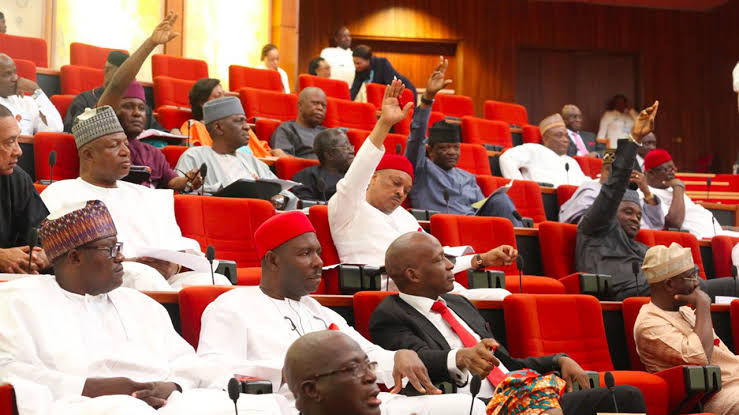The movement for the creation of Anioma State in Nigeria has gained significant momentum, with substantial support from political and traditional leaders.
- Rejoice Nnadiugwu
- Jul 2
- 2 min read

Efforts to create Anioma State have received a major boost as 85 senators from Nigeria’s 10th National Assembly publicly endorsed the move ahead of scheduled constitutional amendment public hearings.
The push for Anioma State — a proposed new state carved out of Delta State to address geopolitical imbalances — has been championed by Senator Ned Nwoko, representing Delta North Senatorial District. He personally engaged with colleagues to secure backing, emphasizing the need to correct the Southeast geopolitical zone’s unique status as the only zone with five states while others have six or seven.
The senators’ endorsement comes ahead of the public hearings scheduled for July 4 and 5, 2025, in Uyo, Akwa Ibom State, where stakeholders including traditional rulers, political leaders, and civil society groups will present their views on the state creation proposal.
Beyond the legislature, the Ndigbo Progressive Traditional Rulers Forum has also thrown its weight behind the initiative, describing it as a unifying move for all Igbo people. The forum pledged full support for the effort, underscoring the historical and cultural significance of the Anioma people within the Igbo ethnic group.
Despite this groundswell of support, the move faces opposition from some quarters. The apex Igbo socio-cultural organization, Ohanaeze Ndigbo, criticized the exclusion of Anioma from the list of proposed states submitted by the House of Representatives Committee on Constitution Review, calling it a deliberate slight against the Anioma people. They urged the Delta State government to reconsider its position and back the creation bid.
The creation of Anioma State, if approved, would adjust Nigeria’s federal structure and potentially ease ethnic and regional tensions. Proponents argue it would bring governance closer to the people, boost development, and foster a greater sense of identity for the Anioma community.
As the constitutional amendment process unfolds, all eyes will be on the public hearings to see whether Anioma State secures the political and popular support needed for formal creation.


Comments